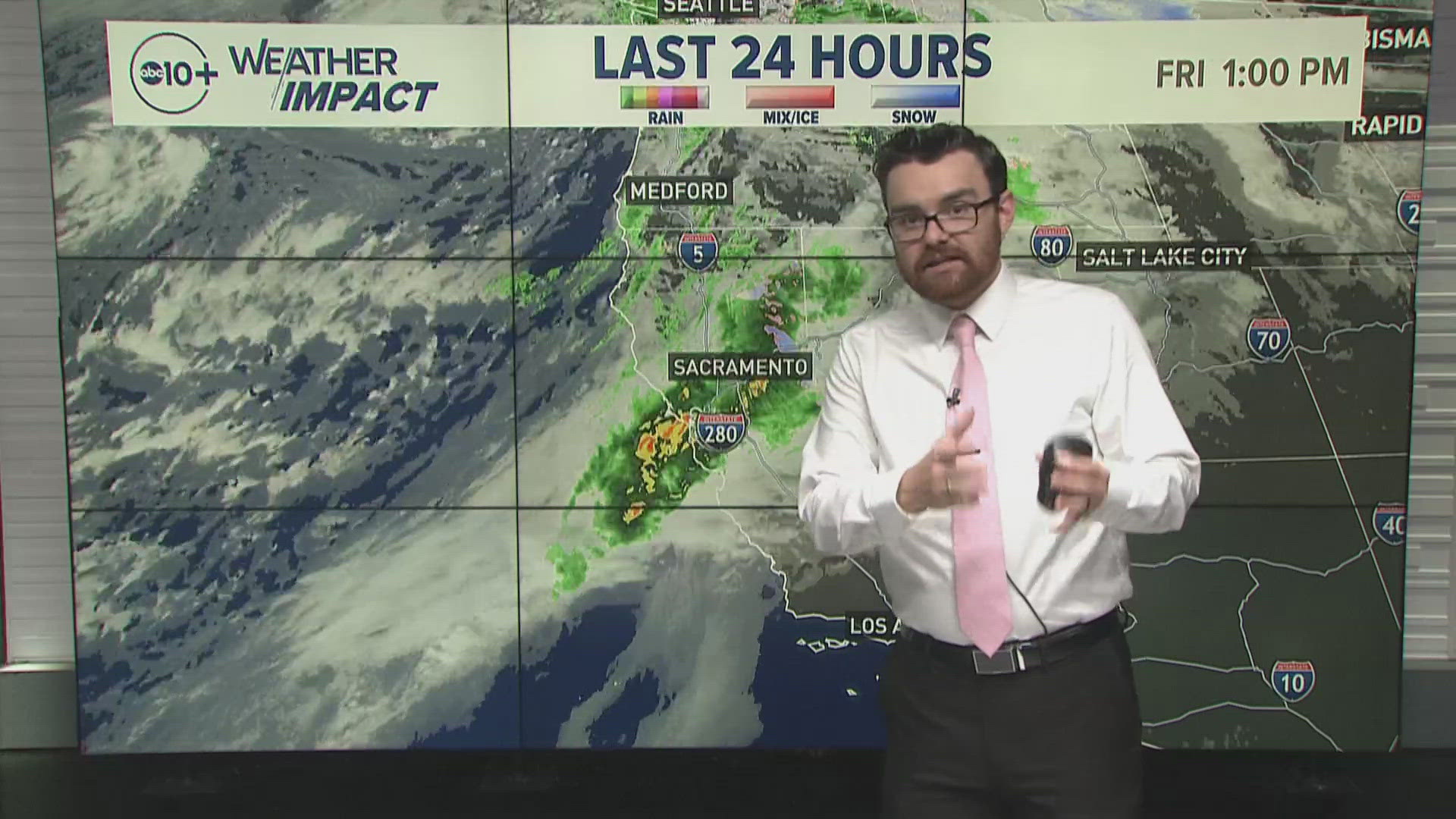CALIFORNIA, USA — California’s initial vaccine rollout was “slow — we were last.”
The current numbers on vaccine equity “look awful.”
The fact that so many children are still not able to attend in-person school is having “a significant impact, developmentally, mentally and emotionally.”
California’s first surgeon general, Nadine Burke Harris, didn’t flinch from acknowledging the challenges the state faces as it nears the one-year anniversary of a coronavirus pandemic that upended life as we knew it. And yet, in a revealing interview on the podcast “California State of Mind,” she was upbeat as she outlined the pivots and progress the state has made.
She opened up about her own challenges as the mother of four boys doing remote learning, and a daughter unable to visit the intensive care unit where her mother was battling a COVID-unrelated illness — what she called “the hardest thing.”
“I think that as most people would imagine, the experience of fighting this pandemic in the role of surgeon general is not separated from the experience of going through the pandemic as a mom, as a daughter, as a wife,” Harris said. “It’s been an amazing experience of trying to provide resources to keep our ICU capacity available and support our doctors and, you know, set up these accessory sites so we can maintain our health care infrastructure, and during that same period of time my own mom was in the ICU, more than once.”
The surgeon general admitted that when the Newsom administration rolled out its original vaccination plan, the overwhelming response was that the system was too complex and was slowing vaccine delivery on the ground. That was a big problem — the federal government was saying the faster a state gets its residents vaccinated, the greater its vaccine allotment — so California is continuing to make adjustments.
As for how fairly the vaccine has been distributed among racial and ethnic groups, Harris said the early numbers reflect the first two groups to be vaccinated in California — health care workers and nursing home residents — who are predominantly less likely to be from communities of color. “So there’s where we start to see those skewed numbers,” she said.
As a specialist in early childhood trauma, Harris encourages parents to watch for signs of stress, including developmental regression, difficulty sleeping and changes in appetite. What she prescribes in response: good nutrition, mindfulness, getting out in nature, and “connecting with people by whom we feel understood and recognized.”
Podcast hosts Elizabeth Aguilera of CalMatters and Nicole Nixon of Capital Public Radio also talked with two small business owners about their eligibility for the state’s new stimulus grant program.
Starting this week, “California State of Mind” will also air on radio and digital stations. Tune in to the show for your weekly digest of essential California news on Fridays at 3:30 and 6:30 p.m. on CapRadio’s stations in Sacramento, Stockton-Modesto, Tahoe-Reno and Quincy. It will also air Fridays at 6:30 p.m. on CapRadio’s sister station, North State Public Radio.
Listen to the 15th episode of “California State of Mind” here. Subscribe on Apple podcasts, Spotify or wherever you listen to your podcasts. You can follow @yourgoldenstate, @CalMatters and @CapRadioNews on Twitter to engage with our show every week and see the biggest California stories of the day.
CALmatters.org is a nonprofit, nonpartisan media venture explaining California policies and politics



